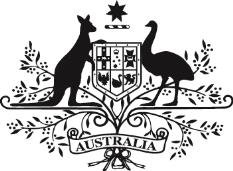July 2, 2016 – 10:49PM
Michael Gordon
Political editor, The Age
Malcolm Turnbull is facing the prospect of the worst kind of win, where the Coalition is returned with the most seats, but his authority is weakened, his internal critics are emboldened and his agenda is imperilled.
Turnbull’s warning that a protest vote would produce the chaos of a hung parliament has not deterred voters around the country from acting on their disappointment in what the Coalition has delivered since 2013.
He wanted the numbers to deliver strong, stable government and banked all on his economic plan built on company tax cuts. The best he can hope for is a wafer-thin majority and a toxic Senate: a recipe for instability if ever there was one.
The industrial legislation that was the basis for this double dissolution is now so in doubt that the joint sitting of Parliament that was intended to pass it is no certainty. Also in doubt is the prospect of Turnbull’s tax-cut legislation being passed without amendment.
Expect those Liberal MPs who supported Tony Abbott and refrained from criticising Turnbull’s campaign to be less constrained now. Turnbull will be criticised for not campaigning hard enough on security and not fighting more resolutely for the budget savings that were blocked in the Senate.
All eyes will be on the former leader, who has already made plain that he would have run a very different campaign. How will he respond?
Bill Shorten, who maintained he was never interested in an honourable defeat, is poised to achieve one, having pushed Turnbull to the brink and defied those who never considered him a serious contender.
Most of the speculation pre-election was that Shorten would be the one whose position would be under threat after the count. Now, he is in a stronger position within his party than Turnbull is in his.
Back in February, senior ALP figures were contemplating the prospect of having to remove Shorten before the election, such was Turnbull’s ascendancy. Shorten’s response was to take risks by laying out an ambitious program, to communicate with more clarity and verve and to campaign like there was no tomorrow.
Now he has earned the opportunity to build on his success, with the expectation that he will lead Labor into the next campaign.
If, as seems likely, Labor wins more seats than the national swing would suggest, this will also be an endorsement of the Labor campaign, including what many considered the overblown claims of the threat posed by the Coalition to Medicare.
The big story, aside from the Labor resurgence, is the move to minor parties and independents, reflecting the disillusionment of voters with the major parties and the established institutions.
The big story within the protest vote is a rebellion against the Coalition’s superannuation changes, which many Liberal voters saw as both a breach of faith and contrary to the principle that retrospective changes should not be introduced.
While Turnbull insists the changes were not retrospective and only affected the most wealthy Australians, he can expect to face white anger from MPs at his first partyroom meeting, post-election.
When the campaign began I wrote that the political dangers for the Coalition were twofold: that those very rich Liberals whose votes had been taken for granted would either vote Labor or withdraw their financial support because they felt they had been betrayed; and that others would become more wary of voting Coalition because they saw the Coalition as more likely to meddle with super in the future.
The Institute of Public Affairs’ John Roskam was confident that Turnbull would change the policy rather than face repudiation at the ballot box.
He was wrong but, as Peta Credlin noted on Sky News, many Liberals enraged by this issue took out their anger on the ballot box. Those who could not bring themselves to vote Labor parked their votes with the minor parties and independents.
How this pans out depends on many variables, with many battles conducted within the main event, and some history being made along the way, like Labor’s Linda Burney becoming the first Aboriginal woman to be elected to the House of Representatives.
Tasmania has gone with Labor; Shorten is set for big gains in New South Wales, Victoria is unlikely to change and could yet produce a Liberal gain; Nick Xenophon’s party has made its mark in South Australia; and the picture is mixed in Queensland and unclear in Western Australia.
Shorten needed absolutely everything to go right to have any prospect of winning the 19 seats to form government in his own right. The unknown is what difference it would have made if he had not promised higher budget deficits over the forward estimates to pay for his promises on health and education.
The impact of the Andrews’ government’s appalling handling of the CFA dispute will also come under scrutiny when Labor strategists ponder what might have been.



